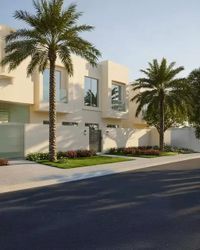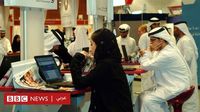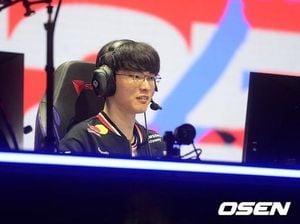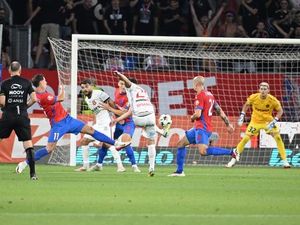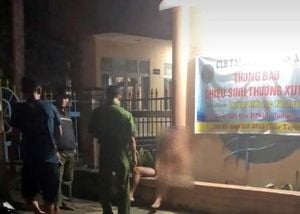Dubai's Municipality has confirmed the launch of the "My Home First" initiative, which applies to granted residential lands for citizens in the Emirate of Dubai. This initiative is based on criteria and standards approved by the Municipality and is not applicable to areas under real estate development companies, such as Emaar.
Since its official launch on March 17, 2025, the initiative has been progressing rapidly, with effective implementation underway. It aims to provide sustainable and comprehensive housing solutions that enhance the stability of national families, aligning with the goals of the "Year of the Community." This initiative seeks to consolidate social cohesion and improve the quality of life in the emirate.
According to the Dubai Municipality, "My Home First" stems from a deep understanding of the transformations within Emirati society and its evolving needs. The initiative aims to meet the aspirations of national families in securing suitable housing that reflects privacy, comfort, and future sustainability. This is particularly crucial for establishing new families and facilitating the lives of young people preparing for marriage.
Many citizens have expressed their happiness with this initiative, which aims to unite families under one roof. They believe it strengthens the focus on family welfare and provides everything necessary to enhance their cohesion, enabling them to play their pivotal role in building stable families. Numerous citizens have praised the initiative as a tangible response to their housing needs and a reflection of the leadership's commitment to supporting family stability and providing a dignified living environment.
Beneficiaries of the new plans adopted by the Dubai Municipality, especially those related to allowing the construction of residential villas on granted lands, have expressed their appreciation. Zainab Al Qasim stated that "My Home First" embodies the Dubai government's commitment to providing a sustainable residential environment that respects Emirati traditions and culture, thereby supporting family stability in society.
Mohammed bin Khamas emphasized the importance of the initiative and its positive impact on citizens' lives, enhancing values of connection and communication, and providing sustainable options and new choices in residential lands for citizens. The initiative is part of the "Sheikha Hind bint Maktoum Housing Program," launched by His Highness Sheikh Mohammed bin Rashid Al Maktoum, aimed at enhancing the stability of Emirati families and supporting their growth and cohesion.
Dubai Municipality confirmed its commitment to adopting modern and practical standards, allowing citizens to build family homes that can be used independently before completing the main villa. This approach enhances the bonds between family members and provides better opportunities for housing.
New adjustments enable families to fully benefit from the area of the second floor, providing more space and options for the house. Additionally, these adjustments reduce problems related to encroachment on land boundaries and improve the designs of facades and internal spaces. The Municipality has created service facilities with two floors and adopted the "Tawon Haus" system, which provides the latest architectural designs that balance optimal land use with preserving a harmonious urban appearance.
Dubai Municipality has put in place flexible and easy procedures that enable citizens to benefit immediately from the new facilities, whether by building family homes or expanding the second floor. They are also adjusting standards and designs in line with the Dubai Code for construction to meet the requirements of the next phase.
The Municipality is keen to maintain modern and practical standards, allowing citizens to build family homes adjacent to each other that can be used independently before completing the main villa. This initiative is designed to enhance family bonds and provide better utilization of spaces.
In another development, Emirati authorities have issued a decision restricting the use of the local dialect in official media to citizens only. Abdullah bin Mohammed bin Butti Al Hamed, Chairman of the National Media Office, clarified that the new media policy has been in effect for about three months.
The new policy mandates that any speaker using the Emirati dialect must be an Emirati and wear the official attire to ensure a correct representation of Emirati society and protect its cultural identity. This decision aims to address what authorities have described as "distorting the Emirati dialect" in some media outlets.
Commentators on social media have noted that this policy reflects a clear directive from the Emirati authorities to enhance authenticity in media messages and limit attempts by non-citizens to alter or misrepresent local cultural components. Concerns have been raised about the increasing use of the Emirati dialect in a diluted form on social media and digital platforms.
While many citizens have welcomed the decision as a bold step towards protecting national heritage and identity, some, particularly those working in the media who are not citizens, have raised questions about the limits of the policy and how it can be implemented without negatively impacting cultural diversity.
Some fear that this decision may complicate communication among the diverse nationalities in the country or create a divide between citizens and non-citizens. One commentator defended the decision, arguing that restricting the local dialect to citizens is essential for preserving national identity, which should remain the domain of "the people of the country" alone.
Furthermore, the rationale behind the authorities' decision stems from the emergence of "hybrid" language patterns in the media, often presented by non-citizens as "Emirati" but lacking cultural accuracy and depth. As a result, officials believe that uncontrolled usage may weaken the Emirati dialect's identity and distort the cultural image of society.
While some media professionals who are non-citizens express concern about potential job losses due to this policy, there are many who master the Emirati dialect and use it to celebrate the culture and identity of the UAE. The coming days will reveal how the media community will respond to this decision and whether it will lead to similar initiatives in other fields aimed at protecting Emirati identity.
